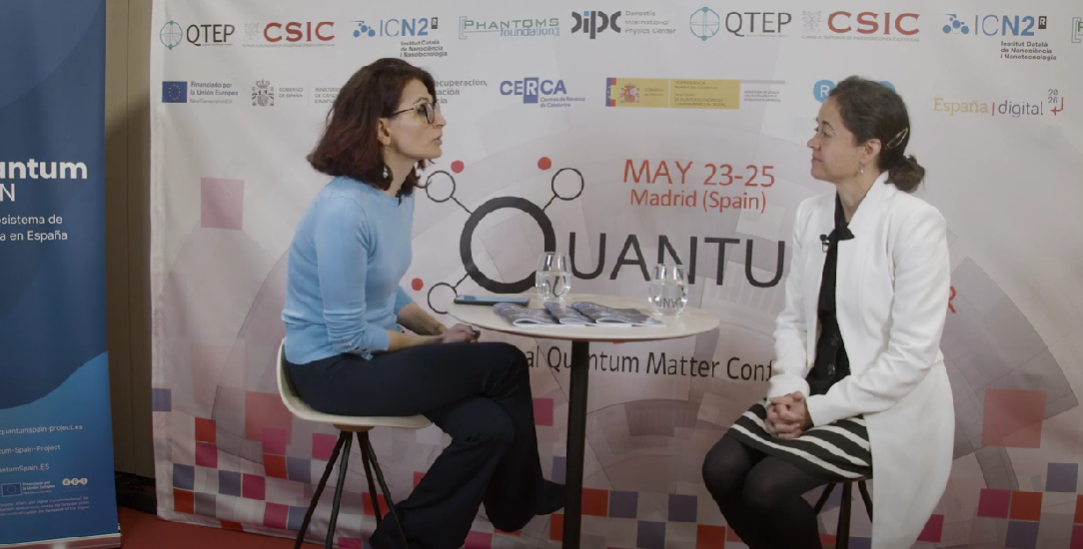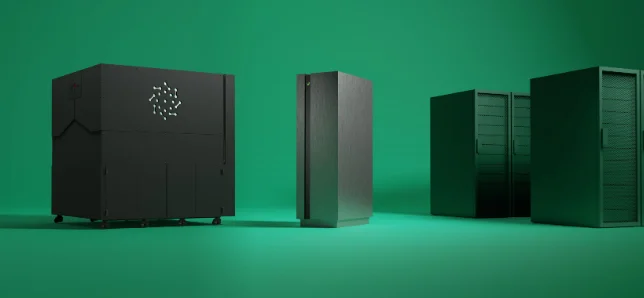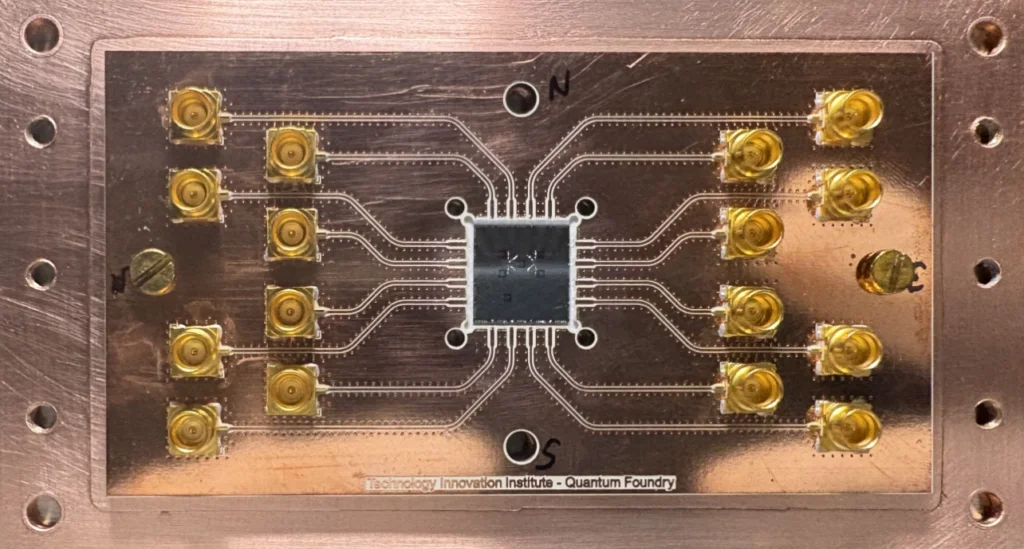The Quantum Matter International Conference 2023, a leading global forum held in Madrid, Spain from May 23–25, 2023, was a chance for attendees to discover how Spain is helping to shape the future of quantum technology and materials.
Along with all the keynotes and panel discussions, many thought leaders in the space were interviewed on an individual basis to get their thoughts on where the industry is and where it’s heading.
During the conference, Dr. Ana Maria Rey, an acclaimed theoretical physicist and professor at the University of Colorado at Boulder — who coincidentally was one of the twelve individuals covered in a TQD Exclusive: 12 Women Pioneering The World Of Quantum Computing some time ago — was interviewed by Virginia Greco, a Scientific Writer at ICN2.
Rey, it should be noted, is the first Hispanic woman to earn the prestigious Blavatnik Awards for Young Scientists, recognizing her groundbreaking contributions to quantum physics.

During the interview, Rey provided insight into the fundamental principles of quantum phenomena while also explaining the development of new quantum computing and communication technologies, her path to success and what young people should do to enter the exciting world of quantum technologies.
Greco’s first question was about Rey’s research and career path.
Pristine Systems
“Well, it’s a very exciting time for us, our work is trying to use atoms and light and control these systems with various applications that range from metrology on quantum information in quantum information quantum simulation and of course, quantum computing,” said Rey, adding that the goal is to use pristine systems that can be controlled and manipulated in the lab like atoms, molecules and ions, and then arrange them in different configurations, in different geometries, in different situations so that they help her and her team understand the complex behaviour of quantum many-body systems.
Rey explained that her work at the University of Colorado at Boulder with the Rey Theory Group is not only theoretical but also involves real experiments.
“Yes, exactly, that’s the very exciting part. So what we do is we do the theoretical modelling, we guide experiments and tell them what are the parameters regime that they have to operate in order to see the expected behaviours,” said Rey.
The interviewer then asked Rey about the groundbreaking work on atomic clocks and metrology and what they have in common.
“They are very tightly connected,” answered Rey. “So, the idea is most of the atoms that we use are the ones that are the basis of the atomic clocks. These are the strontium atoms because they’re a very long life. And the idea is that the clock allows us to interrogate very precisely two internal levels in these atoms.”
She continued that the clocks are so precise, they want to minimize the effects of interactions because for clocks interactions are bad.
“But on the other hand,” Rey went on, “by understanding the interactions, we can use the clocks to shed light on the complex quantum behaviour. It’s really a marriage between trying to use the clocks for precision measurements and better timekeeping, but also to make clocks better by understanding many-body physics, and this feedback cycle.”
Early Years & the US
Greco then asked Rey about her youth in Colombia, South America and how she developed a very successful career for herself in the US.
“Well, I mean, I think Colombia was great in the sense that I had fantastic education. From the earliest stages of my life, I knew that I loved math and I wanted to use math to translate the behaviour or explain the behaviour of how things move and so forth,” said Rey, before expanding on how she did a bachelor program at the University of Los Angeles, where she came across great teachers. “But in order to do that, in fact, I had to leave Colombia and leave my family that is, and of course, it was very hard.”
Rey said that she received a lot of support in the US, which has continued throughout her career. From this, she is trying to make connections and foster science and collaboration in her native country.
When asked about the milestones of her career, Rey had one in particular to talk about.
Atomic Clocks
“Well, I mean, under the context of atomic clocks, we need to understand the many-body interactions in order to make clocks better and this is something that we have done very successfully. So, perhaps one of the milestones is that we predicted a specific configuration where the interactions we’re going to suppress and allow the clocks to measure gravitational redshift in a millimetre sample, and that happened,” said Rey.
Rey thinks that quantum metrology will be the first vertical where quantum mechanics will have the first useful impact on our world.
“Well, I think definitely metrology is the first important quantum application that we will have in realistic terms,” she said. “The idea that we use quantum effects to create even better sensors, which is already happening in the lab [at LIGO (Laser Interferometer Gravitational-Wave Observatory)], but now we have to do [it] using fully controllable systems, I think this is the first milestone and with that, I think there has been great progress on the control of atoms arrays for conducting qubits, so maybe develop better gates, a better way to control and manipulate these systems.”
Rey wants to position quantum clocks to shed light on the fundamental questions of our universe.
“Maybe clocks can tell us about dark matter,” she said. “The unification between quantum gravity, gravity and quantum mechanics. This could be something that hopefully in the next few years, we can make clocks so precise that we have an answer.”
Finally, Greco asked the Blavatnik Award winner what she would say to any young scientist who is early on in their career in the field.
“Yeah, well, first, work in the things that you love, that your passionate about and work very hard because only with hard work can you get all the skills from the progress needed to be successful, but if you work hard and love what you do, you can do it,” said Rey.
Featured image: Quantum Matter International Conference 2023
If you found this article to be informative, you can explore more current quantum news here, exclusives, interviews, and podcasts.
















